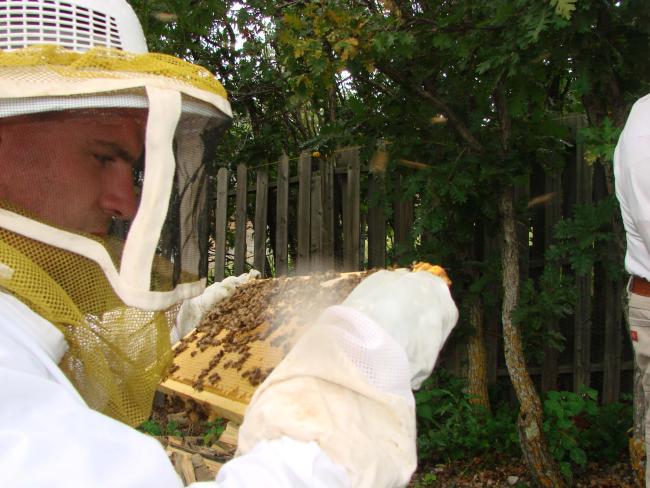The Colorado Bee and Bee Products Act
The Colorado Bee and Bee Products Act was originally adopted in 1963. Between 1963 and 1987, the purpose of the Bee Act and its associated Rules was to inspect beehives statewide for bee diseases and to prevent the spread of bee diseases* from one apiary to another. CDA required destruction of diseased beehives. Prior to 1985, inspections were made randomly, except for those beekeepers requesting an inspection in order to get certification for out-of-state shipment of their bees.
In the mid-1980s the Bee Inspection program switched from State funding (taxpayer/General fund) to self-funding via registration/licensing fees. Legislative mandates required that this program, along with several other state regulatory programs, become self-funded. In 1987 the Bee Advisory committee began advocating for the decrease in registration fees, and the beekeeper inspection program began operating on a very limited basis. Routine inspections were discontinued in 1987. The number of licensed beekeepers decreased from 380 in 1987 to 12 in 1988. Finally, in 1990 the registration fees were eliminated and the program has been unfunded ever since.
Hive Inspections
Currently, inspection of apiaries is only conducted at the request of a beekeeper to meet export certification required by another state. The beekeeper is responsible for all costs associated with a requested inspection.
